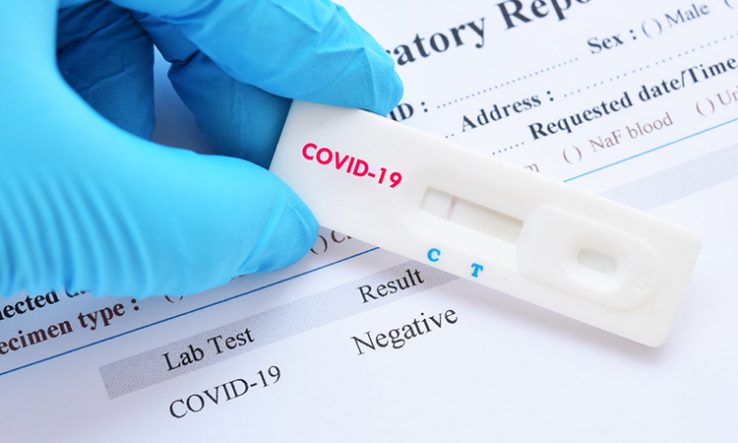
Lessons include need for investment in behavioural research and faster clinical trials
Officials at the US National Institutes of Health have set out more than a dozen lessons for biomedical research they say should be learned from the Covid-19 pandemic, including that more behavioural research is needed and clinical trials should be shortened.
Writing in a paper published in the journal Science this month, authors including former NIH director Francis Collins said that an overarching theme of the lessons learned was the need to “resist the temptation to slip back into complacency” around pandemic threats.
“We must sustain our current focus on pandemic preparedness,” Collins and co-authors urged. There is a need for ongoing global surveillance of disease-causing pathogenic organisms, requiring “substantial resources” for improvements, they said.
In addition, they said that research organisations and policymakers “must invest…now” in the development of vaccines against, and tests for, future pandemic-causing pathogens.
Lessons for science
The authors suggested 17 specific lessons for biomedical research, under the headings “supporting science”, “responding when a pandemic pathogen emerges” and “moving research findings into the clinic”.
Lessons for science included the need to “invest broadly” in basic research in fields including virology and immunology to build up knowledge.
The authors also said there was a need for the immediate public release of research results, better engagement between researchers and communities, and “major investment” in the behavioural and social sciences to improve crisis management and reduce vaccine hesitancy.
This latter point echoed one made last month at the World Economic Forum in Davos by speakers including European Research Council president Maria Leptin.
Pathogen response
Among their lessons for responding when pandemic-causing pathogens emerge, the authors flagged a need to engage partners from all R&D sectors from the very start, to enable the rapid and large-scale development of treatments and other technologies.
Also required are agreements among research organisations on making research data open rather than prioritising the allocation of credit for discoveries, as well as ensuring that advanced purchase agreements with biotechnology companies give researchers access to data, specimens and products.
Several of the lessons relate to clinical trials. The authors called for the development of template trial protocols that could be adopted worldwide, shorter timetables for trials, and a diversity of participants to ensure that trial results are equitable and convincing for all parts of society.
In the US, the burden of Covid-19 fell heavily on Black, Hispanic and American Indian people, but these people were underrepresented in early vaccine trials, the authors said.
Translational research
On moving research from the laboratory to the clinic, the authors suggested three lessons.
One was the need to closely involve regulators in such translational research, “to avoid missteps that can cost months” in the development of treatments and other technologies.
The other two lessons were a need for trustworthy guidelines for using research results in clinical settings and a need for rapid communication to clarify the provisional nature of research findings, “especially to underserved communities”.
Concluding their paper, the authors stressed: “Perhaps the most valuable lesson that Covid-19 has taught the research community—and hopefully society more broadly—is the importance of collective effort and continuous investment in basic and applied research.”